We've answered this question for thousands of patients since our founding in 2003. Here's the answer:
At its heart, concierge medicine is about building a stronger personal relationship between you and your physician.
On the rest of this page, we'll explain everything you need to know about concierge medicine. You can also use the form to download a copy of our Understanding Concierge Medicine Guide to read on your own time.
We've answered this question for thousands of patients since our founding in 2003. Here's the answer:
At its heart, concierge medicine is about building a stronger personal relationship between you and your physician.
On the rest of this page, we'll explain everything you need to know about concierge medicine. You can also use the form to download a copy of our Understanding Concierge Medicine Guide to read on your own time.
The goal of a concierge medicine practice is to provide the best care and experience possible for every patient. Here's how it works.
For you, this means a better relationship with a physician who actually knows who you are, who has the time to answer all of your questions, and who can deliver the personalized care you deserve.
You’re probably wondering… ok, so what’s the difference from the traditional primary care you’re used to? It’s a good question.
First, the difference isn’t about the quality of the doctor. In both traditional and concierge practices, you’ll find capable physicians who care deeply about their patients.
The real difference is the environment in which they practice.
Traditional primary care physicians often manage 2,000+ patients. That leads to short visits, long waits, and a reactive approach to care. Concierge medicine limits patient panels so doctors can take their time, build relationships, and focus on prevention.
Want to see how your care experience compares?
Take our 3-minute Primary Care Check-Up to get a personalized report and see where your current care may be falling short — and how a different model could make a difference.
/PartnerMD%20Primary%20Care%20CheckUp.jpg?width=500&height=500&name=PartnerMD%20Primary%20Care%20CheckUp.jpg)
What's included in a concierge medicine membership varies from practice to practice.
At almost every concierge medicine practice, you should expect the following things to be included in your membership:
These are standard across almost every concierge medicine practice. There are some practices that include additional perks and services, such as:
Explore Membership at PartnerMD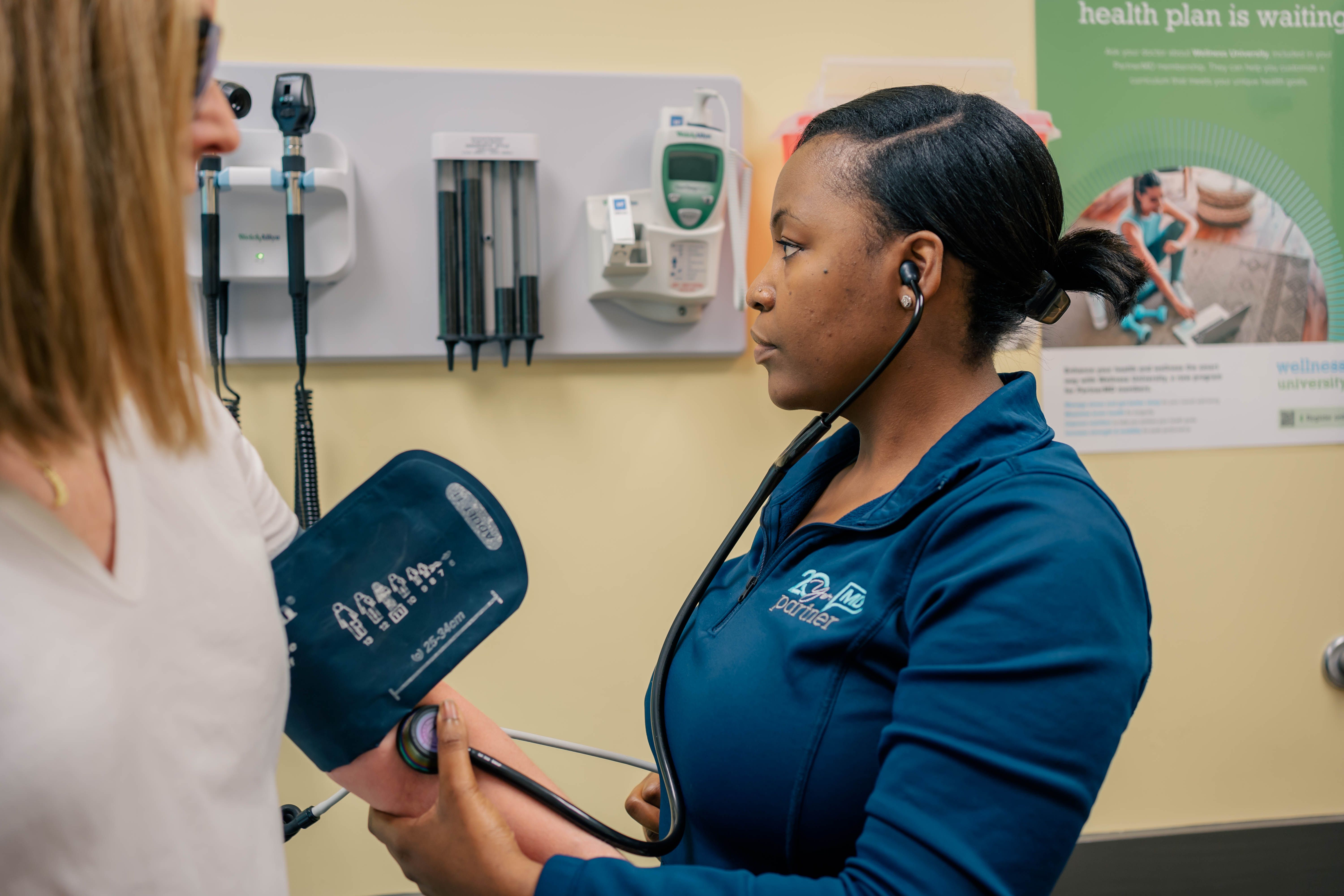
Since its launch in 1996, the cost of concierge medicine has come down significantly. The first concierge medicine practice cost $20,000 per year.
Our research has shown that annual fees for concierge medicine membership now tend to fall between $2,000 and $5,000 per year. Here are a few prices from concierge practices we've found online, including ours:
Yes, you will continue to hear about outliers, like the so-called “elite” practice that costs $20,000 or more a year, but we tend to call that VIP medicine or luxury medicine. Most concierge practices cost considerably less.
Get Your Instant Quote from PartnerMD.png?width=1080&height=770&name=Annual%20Cost%20of%20CM%20Through%20Years%20(1).png)
Most concierge medicine practices work with health insurance the same way a traditional practice would. Here are a few things to know about health insurance and concierge medicine.
Be sure to double-check that a concierge office works with your specific carrier. See if they take government plans, like Medicare, Medicaid, or Tricare, that you might use now or in the future.
Health Insurance at PartnerMD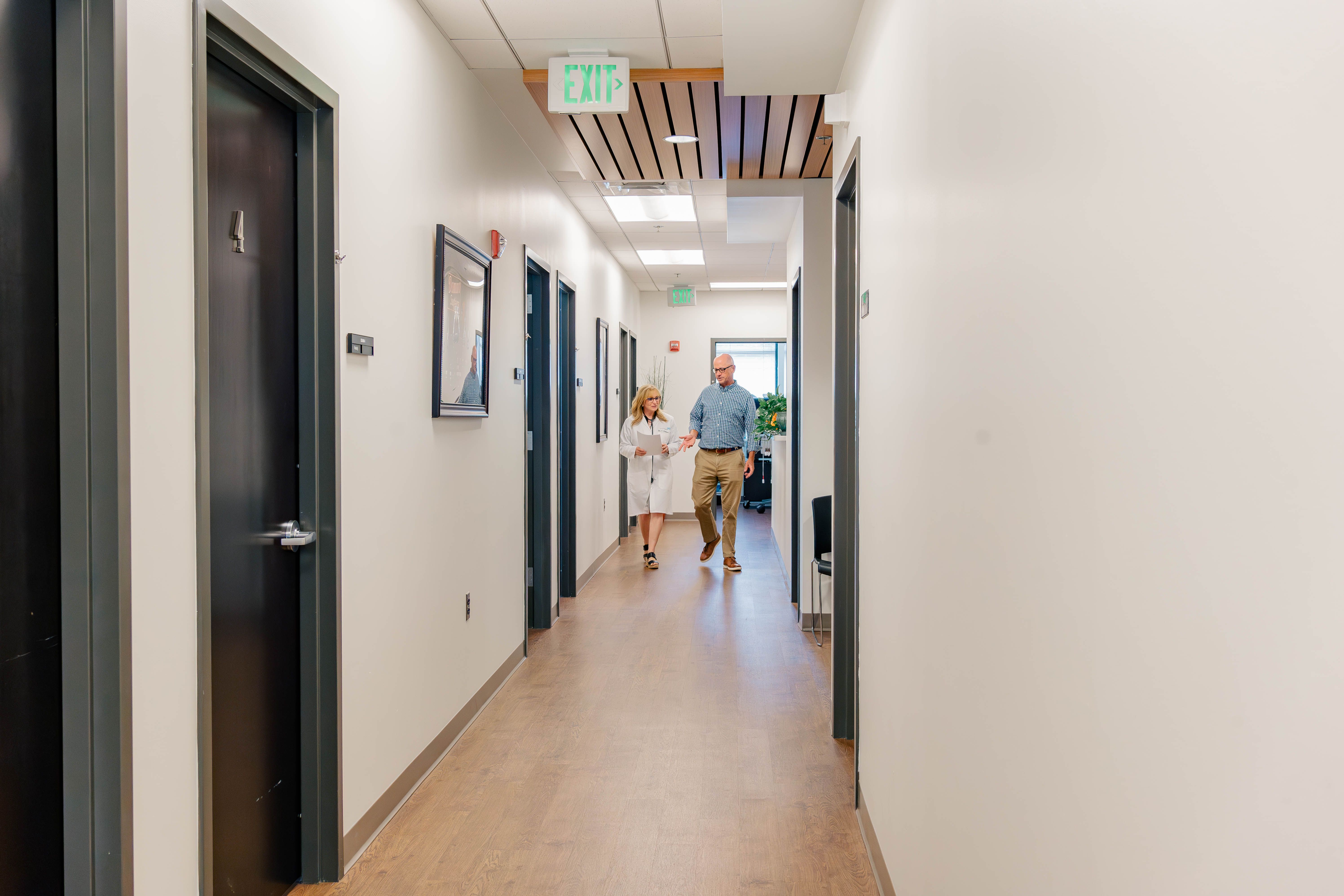
As a concierge medicine practice, we're obviously big believers in concierge care.
However, we also want to talk honestly about its pros as well as its cons, so you're sure you're making the right decision for you.
Check out this infographic for a summary and read our blog on The Pros and Cons of Concierge Medicine for Patients for more information.
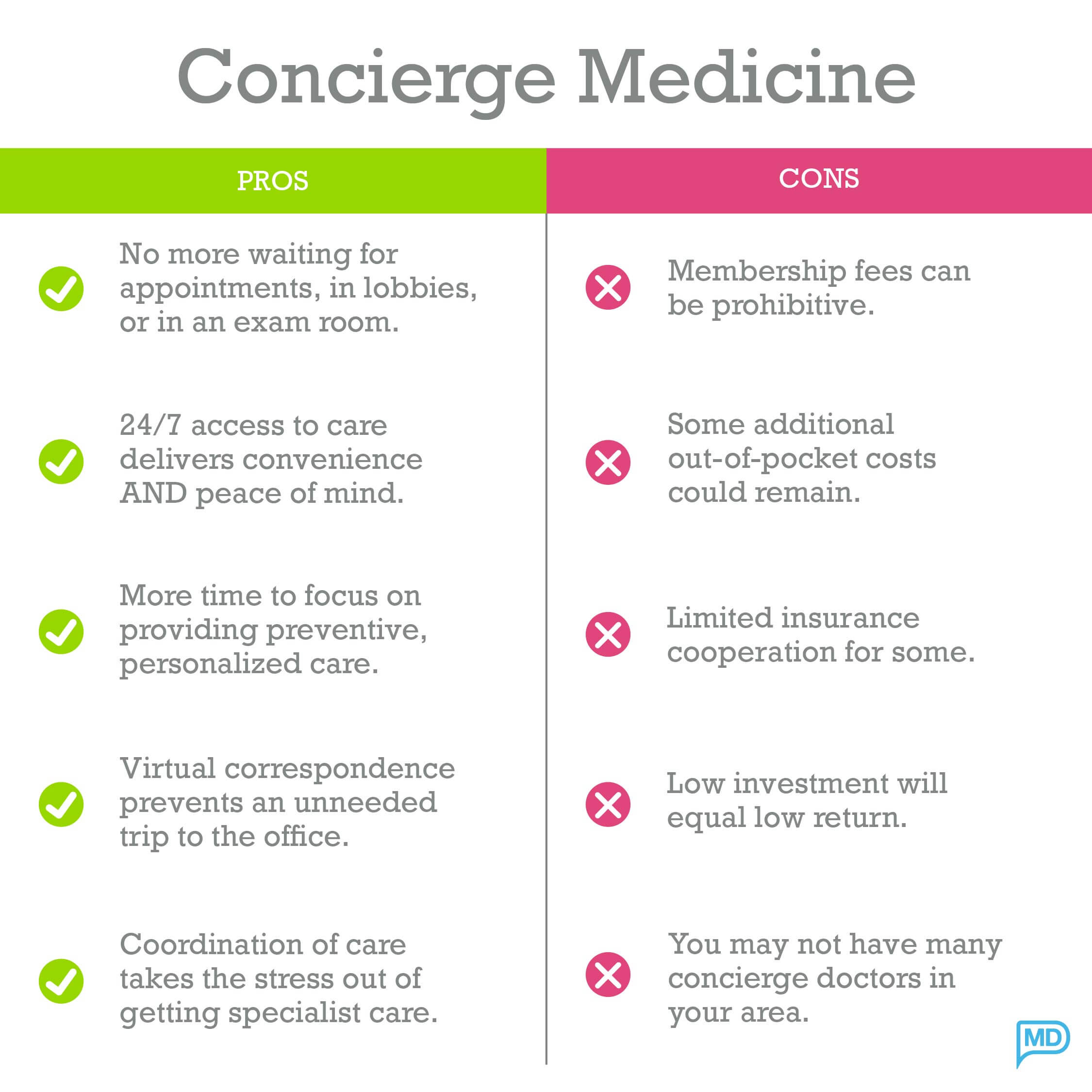
"I am extremely satisfied with the exceptional, efficient, and timely patient care I am receiving...I would never leave this valuable asset that is in partnership with me to improve and maintain my health and quality of life."
- J.E.S., Concierge Medicine Patient
Over our 20 years in concierge medicine, we've talked to thousands of patients about why they are looking to switch. Here are the top five reasons we hear the most.
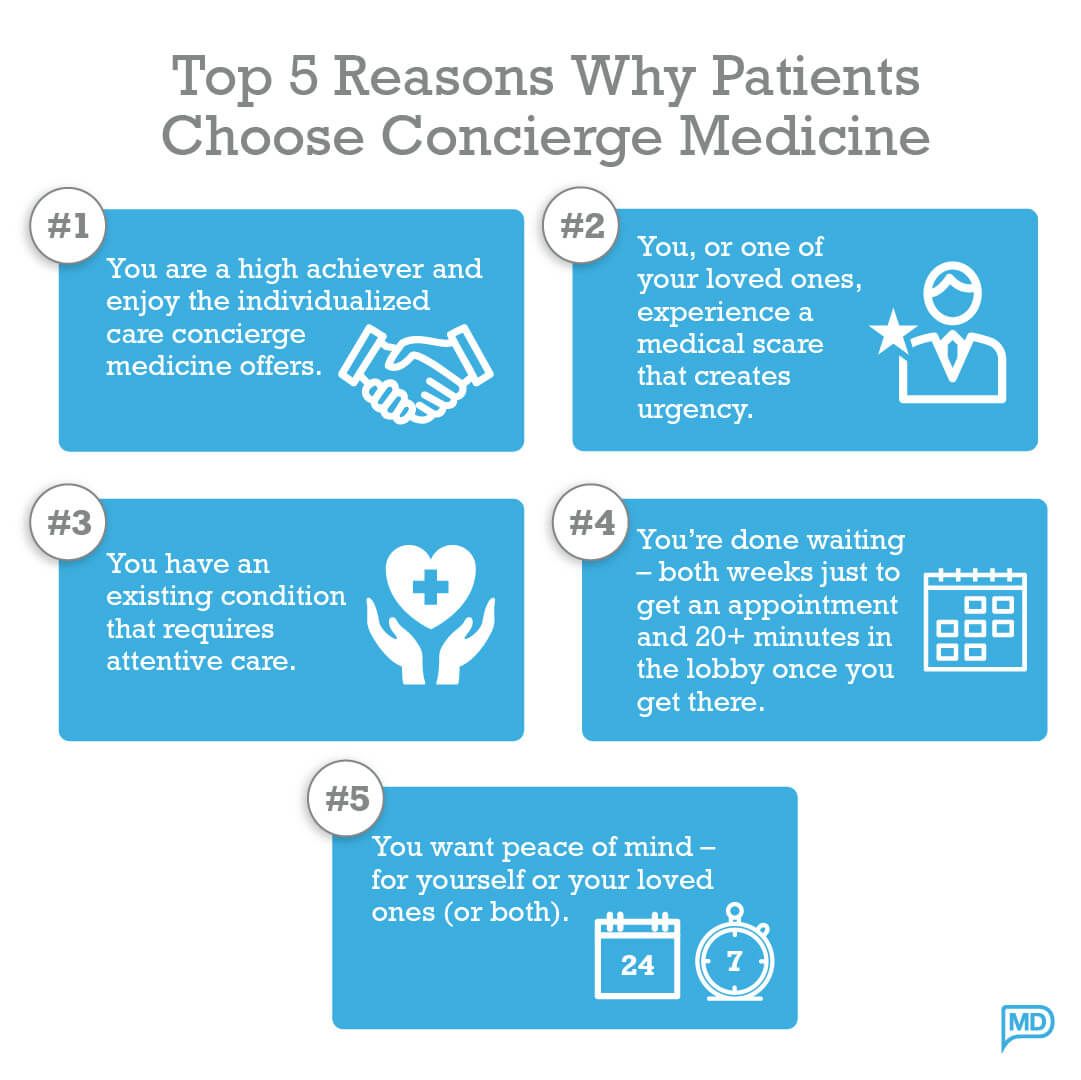
Concierge medicine doesn't provide a better experience for just patients. It provides a better experience for primary care physicians, too. Here are the top reasons we hear from physicians about why they switch.
Concierge medicine allows physicians to slow down, spend more time with fewer patients, and be the kind of doctor they want to be for every patient.
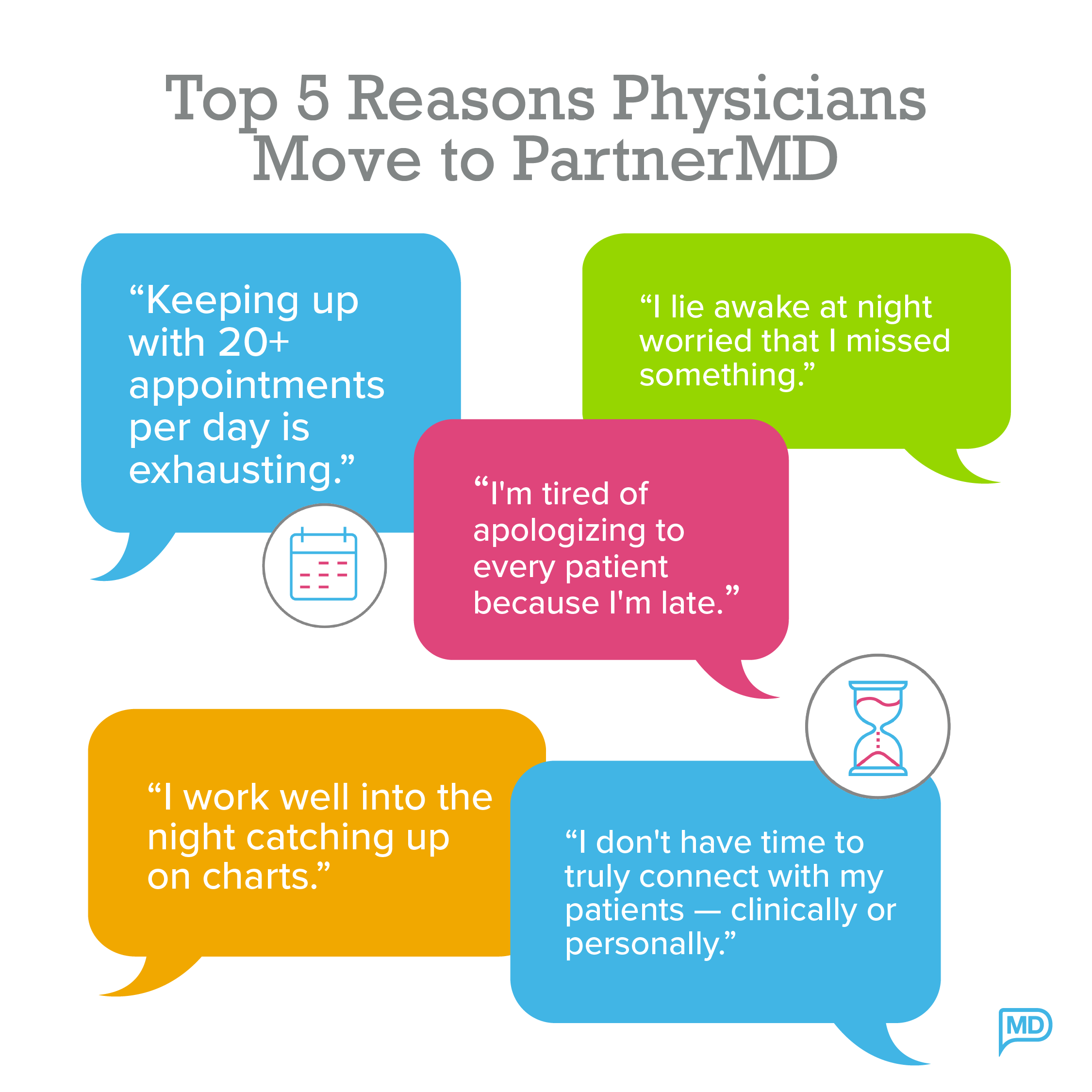
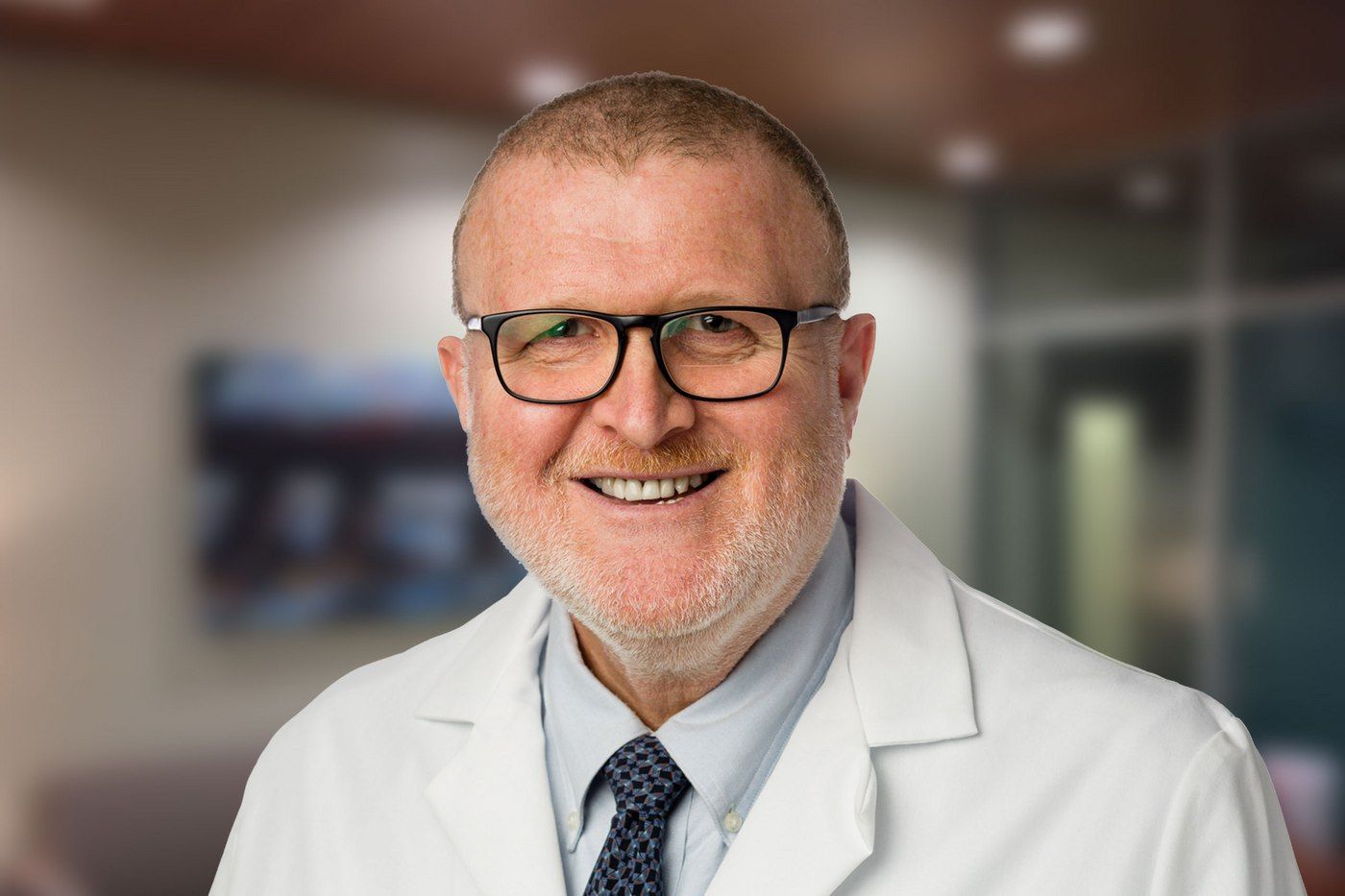

We've helped patients find the right concierge doctor for their situation for more than 20 years. Here are four ways you can find a concierge doctor near you.
Whether you live near one of PartnerMD's offices in Virginia, Maryland, South Carolina, or Georgia or not, we sincerely hope you find the care you're looking for.
Meet PartnerMD's Concierge Doctors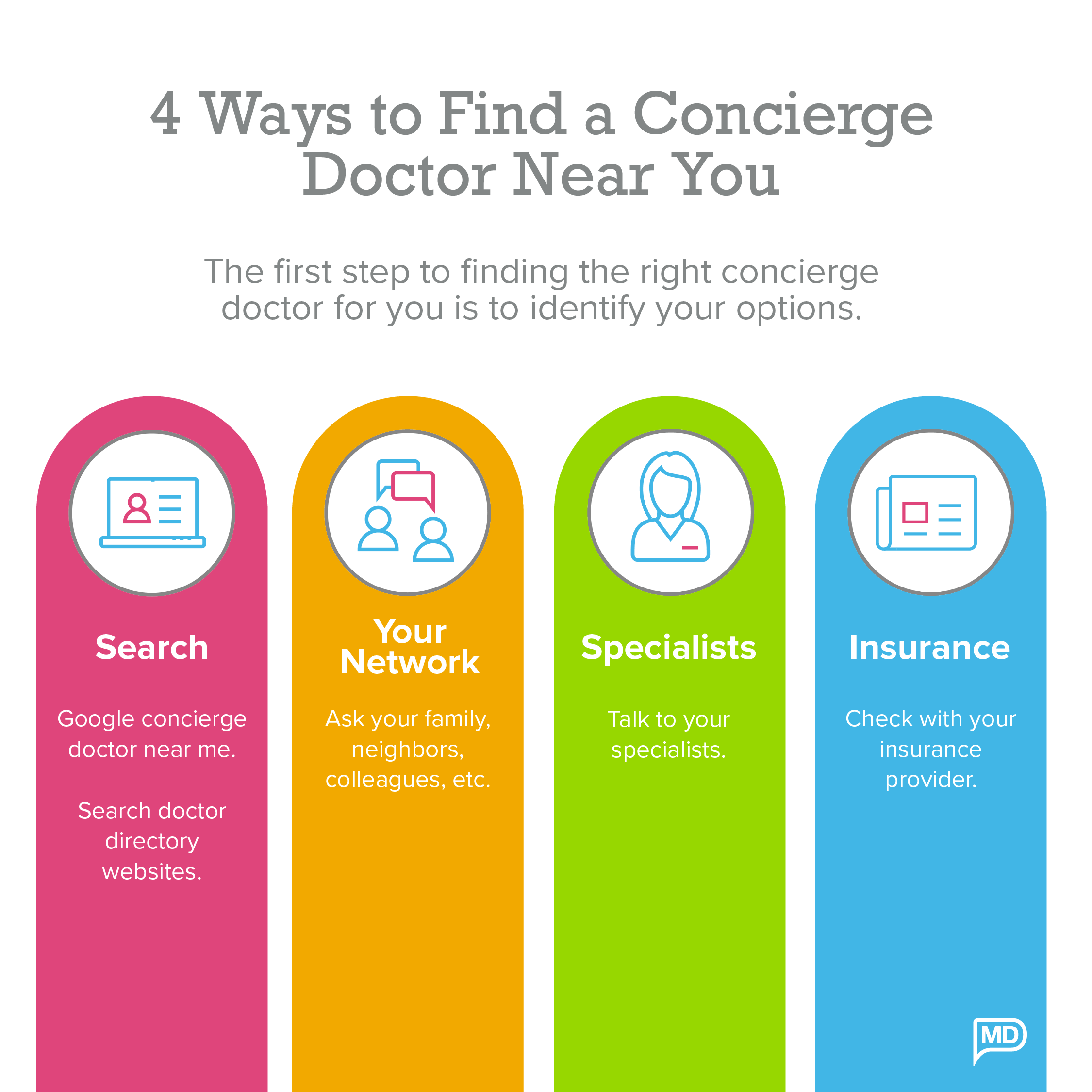
A membership at PartnerMD provides unrivaled access to a physician who understands you and your health, all without the hassles of traditional primary care.
If you live near one of our offices, we'd love to talk to you about your health needs. Complete this form to take the first step toward a better healthcare experience. Here's what happens next:
A membership at PartnerMD provides unrivaled access to a physician who understands you and your health, all without the hassles of traditional primary care.
If you live near one of our offices, we'd love to talk to you about your health needs. Complete this form to take the first step toward a better healthcare experience. Here's what happens next: